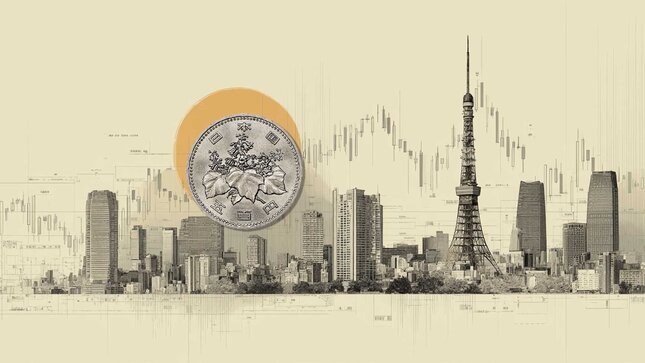We humans have a burning desire to always know why things happen. Curiosity is an innate quality that most of us possess and in some respect, this is a great attribute. This inquisitiveness has led to wonderful advances and new discoveries in the fields of medicine, science and technology. It’s also what makes life fun and interesting. It can also be an entertaining endeavor when it comes to the financial markets. Trying to figure out (after the fact) why a market reacted a certain way satisfies our need to know, but doesn’t necessarily makes profitable traders. What do I mean by this?
Just tune in to any of the financial news stations and listen to all the punditry and analysis that goes on from folks that rarely make money from trading. These folks make their salaries from disseminating information that quite often has already been priced into the markets. The primary job of the financial news media is to inform us of why the market moved and then extrapolate other ramifications so that the audience stays tuned in. Pundits espouse their views of where the market is likely to go next and are no better than random in their accuracy.
So, can we trade in a news vacuum? In the sense that news is noise that tends to cloud our judgment, yes. That said, a trader should know when the news will be released, but not for the reasons you might think. We shouldn’t concern ourselves with the consensus views or what the numbers released tell us about the economy or any of that stuff. The instantaneous reaction of markets makes it almost impossible to predict in what direction the market will move after the release. Furthermore, reacting after the financial news will always lead us to chase price, resulting in a high-risk trade.
Instead, we should look at the news as an opportunity to engage the market in a low-risk manner. For one, we know the markets spike immediately after the financial news is released. This is a strong move that generally pushes the market into supply or demand. And unlike the conventional wisdom of buying after good news, or selling after bad news, we will take the opposite side of those trades.
In most cases, positive news pushes prices higher, getting the novice to chase, buying into a level where we can find objective supply. Conversely, gloomy news sets off a spate of selling into levels where institutions are willing buyers.
A recent example of this was last month’s Non-Farm Payroll release. As we can see from the 30-year T-Bond contract below, the initial reaction to the report was positive which induced the novice trader to buy right into an area where institutions were sellers (highlighted in yellow).
The number was a disappointment. The economy created 148,000 new jobs less than the consensus of many Wall Street Economists. The initial rally was caused because of the perception that a potential slower economy would lead to lower interest rates. But as we can see, that was the absolute wrong trade to make as Bonds embarked on a steep selloff.
The lesson here is the actual content of the news is to be ignored, but knowing when the financial news is to be released is important as this uncovers the illusion and the opportunity. Do you know which is which?
This content is intended to provide educational information only. This information should not be construed as individual or customized legal, tax, financial or investment services. As each individual's situation is unique, a qualified professional should be consulted before making legal, tax, financial and investment decisions. The educational information provided in this article does not comprise any course or a part of any course that may be used as an educational credit for any certification purpose and will not prepare any User to be accredited for any licenses in any industry and will not prepare any User to get a job. Reproduced by permission from OTAcademy.com click here for Terms of Use: https://www.otacademy.com/about/terms
Editors’ Picks

EUR/USD: US Dollar to remain pressured until uncertainty fog dissipates Premium
The EUR/USD pair lost additional ground in the first week of February, settling at around 1.1820. The reversal lost momentum after the pair peaked at 1.2082 in January, its highest since mid-2021.

Gold: Volatility persists in commodity space Premium
After losing more than 8% to end the previous week, Gold (XAU/USD) remained under heavy selling pressure on Monday and dropped toward $4,400. Although XAU/USD staged a decisive rebound afterward, it failed to stabilize above $5,000.

GBP/USD: Pound Sterling tests key support ahead of a big week Premium
The Pound Sterling (GBP) changed course against the US Dollar (USD), with GBP/USD giving up nearly 200 pips in a dramatic correction.

Bitcoin: The worst may be behind us
Bitcoin (BTC) price recovers slightly, trading at $65,000 at the time of writing on Friday, after reaching a low of $60,000 during the early Asian trading session. The Crypto King remained under pressure so far this week, posting three consecutive weeks of losses exceeding 30%.

Three scenarios for Japanese Yen ahead of snap election Premium
The latest polls point to a dominant win for the ruling bloc at the upcoming Japanese snap election. The larger Sanae Takaichi’s mandate, the more investors fear faster implementation of tax cuts and spending plans.
RECOMMENDED LESSONS
Making money in forex is easy if you know how the bankers trade!
I’m often mystified in my educational forex articles why so many traders struggle to make consistent money out of forex trading. The answer has more to do with what they don’t know than what they do know. After working in investment banks for 20 years many of which were as a Chief trader its second knowledge how to extract cash out of the market.
5 Forex News Events You Need To Know
In the fast moving world of currency markets where huge moves can seemingly come from nowhere, it is extremely important for new traders to learn about the various economic indicators and forex news events and releases that shape the markets. Indeed, quickly getting a handle on which data to look out for, what it means, and how to trade it can see new traders quickly become far more profitable and sets up the road to long term success.
Top 10 Chart Patterns Every Trader Should Know
Chart patterns are one of the most effective trading tools for a trader. They are pure price-action, and form on the basis of underlying buying and selling pressure. Chart patterns have a proven track-record, and traders use them to identify continuation or reversal signals, to open positions and identify price targets.
7 Ways to Avoid Forex Scams
The forex industry is recently seeing more and more scams. Here are 7 ways to avoid losing your money in such scams: Forex scams are becoming frequent. Michael Greenberg reports on luxurious expenses, including a submarine bought from the money taken from forex traders. Here’s another report of a forex fraud. So, how can we avoid falling in such forex scams?
What Are the 10 Fatal Mistakes Traders Make
Trading is exciting. Trading is hard. Trading is extremely hard. Some say that it takes more than 10,000 hours to master. Others believe that trading is the way to quick riches. They might be both wrong. What is important to know that no matter how experienced you are, mistakes will be part of the trading process.
The challenge: Timing the market and trader psychology
Successful trading often comes down to timing – entering and exiting trades at the right moments. Yet timing the market is notoriously difficult, largely because human psychology can derail even the best plans. Two powerful emotions in particular – fear and greed – tend to drive trading decisions off course.



